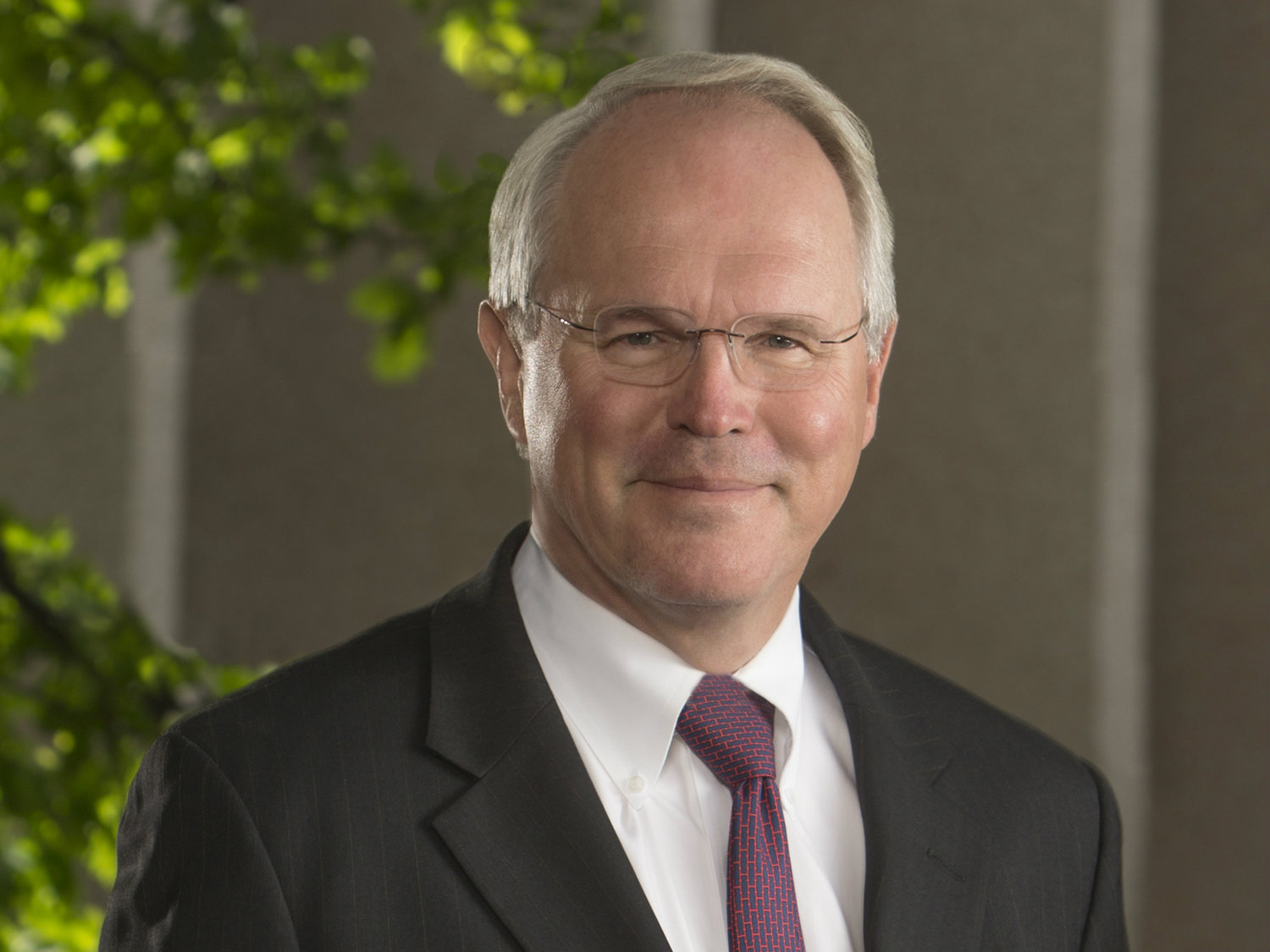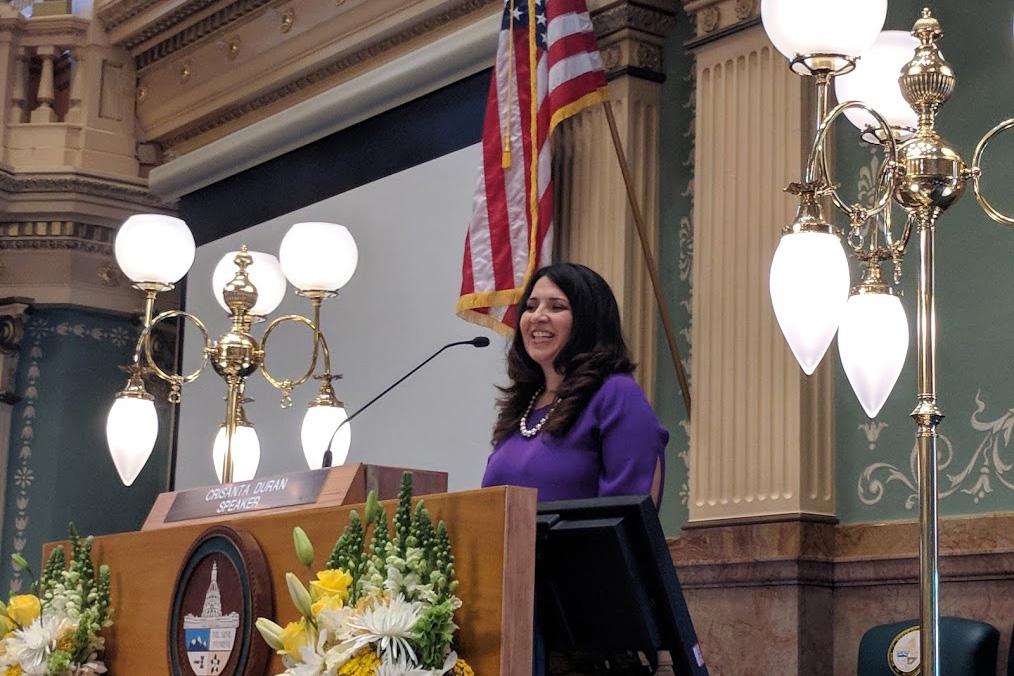
Updated at 5:15 p.m. on Wednesday, July 30, 2025.
American diplomacy is taking a new posture under the Trump Administration, with the State Department laying off employees and moving away from traditional foreign policy positions like international aid.
Ambassador Christopher Hill has worked in countries that include Serbia, Iraq and Poland in addition to serving as dean of the Josef Korbel School for International Studies at the University of Denver. His time in foreign service has spread across presidents from both parties and he told Colorado Matters Senior Host Ryan Warner that the wind down in the international relations arm of the government could end up costing more money than it saves.
“Shocking as this sounds, there is money in diplomacy in the sense of a country is receiving something from you and you want that country to do something, and the country says, ‘We want do it, and we don't want to put at risk what we're getting from you, so we're going to go ahead and do it,’” Hill said.
Hill spoke with Colorado Matters about morale among career diplomats, cost cutting in the State Department and how tariffs impact modern diplomacy.
This interview has been edited for length and clarity.
Ryan Warner: What's your overall reaction to the changes you've either seen or have heard are coming?
Ambassador Christopher Hill: Well, what is remarkable about it all is that it seems to lump adversaries in with traditional allies. So I think countries are looking at us and wondering what's next, and feeling that their investment in a good relationship with us has really paid them very few dividends. So, clearly, we're on a track where we're not going to be giving countries much assistance, and by the way, assistance is part of, we're trying to help countries be more stable so that we don't have to deal with problems back in our country. They can solve problems in their country, but it's also a way of making sure we have friends and allies and people who think the way we do, and that seems to be getting lost.
Warner: I want to put a finer point on this idea that the administration either is conflating or seems to not make much of a distinction between adversaries and allies. I think what you're saying is people who have traditionally seen us as a friend don't necessarily view us that way now.
Hill: Well, that's very clear that they're obviously concerned about us because they're not sure that they can invest in something. Often, you would ask a country to do something and they don't want to do it, but they'll do it because they value the relationship. I think now they're wondering, "Well, if we do it, we're not going to get any credit for it down the line, because there is no relationship." There's just a transaction like buying something in a fruit stand.
Warner: So you find the relationships to become more transactional?
Hill: There is no question that our relationships in foreign policy have become transactional, though certain traditional friends and allies, I mean, clearly Israel is one of those, but we've just seen that with a heavy investment in the relationship with India, which has not been easy over the years, we're going to hit them with some pretty high tariffs. And when you hit a country with tariffs, you have a situation where the country's own economy, own unemployment rate may be affected, own inflation rate may be affected, and countries' leadership cannot be indifferent to this kind of development.
Warner: The current Secretary of State has described the State Department as bloated and ideological. And as a career diplomat, I wonder if that was your experience, if you saw signs of that?
Hill: No, that was not my experience. Look, the State Department, like any organization with more than three people, you should always be looking at possible reforms, you should always be looking at the question of, "Can you do something better than you're doing it now?" And I think one of the things people have looked at in the State Department is you have these geographic bureaus. For example, the European Bureau, they're dealing with our relations with Europe, but the people in the European Bureau may not be the experts on, say, tariffs or on energy. So, for that, you have an economic bureau or an energy bureau to supplement that.
And some people, especially the Trump people, have said, "This is an example of a bloated bureaucracy." Again, there's no question that things always can be done better. I mean, everything written can be done better with perhaps the exception of the Gettysburg Address, but everything can be improved. But this kind of meat cleaver approach has really dimmed many people's prospects or consideration of careers and international affairs. And it has also raised overseas the question of, "What are we doing and why are we doing it?" Because the US now poses itself as a victim of this international system, which frankly, we created. We created not only in our own image, but also as a system that would help our country. And now it appears we are not invested in that, and that shows by this idea that we have to get rid of all these people for, I think, de minimis economic gains for our country and had a lot of damage in terms of what we're going to be able to do in the world.
Warner: No mincing words here. Let's go deeper into the question of USAID and Voice of America as well. I mean, they've essentially been eliminated. Funding for humanitarian efforts in Africa has been slashed, as I mentioned. Just say more about how that impacts the role of American diplomats. I mean, you talked about this idea that it simply builds goodwill in the HIV/AIDS fight. It's certainly a question of keeping a disease at bay that knows no borders, but what do you think the losses are here?
Hill: Well, first of all, I would say it's not just a question of building goodwill. I mean, you want to deal with diseases. Whether it's Ebola or HIV, you want to be able to deal with them where they come up, because sooner or later, a pandemic will come to the US, so you want to be able to get on the issue quickly and deal with it so that it does not become a problem in the US as well. And so that's why we have kind of forward-deployed health programs.
There's also obviously the humanitarian issue where you have to ask yourself, "Why is the world's wealthiest country not prepared to help some of the world's poorest countries?" And that gets into a kind of philosophical or moral question, but I think a fair one as well. So there are a lot of reasons why you want to keep these programs going. And then, I mean, shocking as this sounds, there is money in diplomacy in the sense of a country is receiving something from you and you want that country to do something, and the country says, "We want do it, and we don't want to put at risk what we're getting from you, so we're going to go ahead and do it." So those kinds of issues are now kind of thrown up in the air, and no one's really sure what the lay of the land is or what the rules of the game are.
Warner: I don't think I've ever heard that phrase uttered: "There is money in diplomacy."
Hill: In the sense that let's say “Country X” wants to buy some military equipment from you, but they're also looking at military equipment from another country. And they see the relationship with you as positive. That is if they buy your, say, military equipment, they know that that will help their overall relationship with you, so they may do that. In short, these transactions such as buying military equipment, or just business deals, can play to the overall fact of how your relationship proceeds.
But now they see each transaction as being separate and not really leading to any deepening of a relationship. And so they have to kind of question: "Do we really want to buy from the US where we get no goodwill out of it?" As opposed to some other country which may throw in some additional support to them. So countries are wondering, "What does it mean to deal with the US?" Again, this is all very new, this is all in the last six months or so, but countries are really questioning: "What have we been doing with the US over the years and how do we handle them in the future?"
Warner: One thing I hear as the federal government shrinks its support both domestically and abroad, is the private sector or individuals, or perhaps even churches and religious organizations will take up the cause. How do you think that fits into the picture of diplomacy, of humanitarian aid, etc.?
Hill: Well, certainly over the years you've had private sector and religious groups doing things. You have religious groups, for example, helping with refugees. And often, they get contracts or they receive some funds from the US to help them help refugees, for example. So this is not new. The question is, can you really look at a country that may have some strategic interest to you that may have some broad interest to you and say, "Well, we don't really need to be involved because we're sure the private sector will jump in"? And the private sector cannot always jump in, nor are their interests always totally aligned with US interests. So I think it's a little wishful thinking to say, "Well, we don't have to do anything as a country, as a nation. We can rely on our private individuals to do all of this."
Make no mistake, private Americans, as people, as individuals, have been very generous, and we should all be very proud of that. But I think there's also very much a necessity of having our government — our state, if you will — step forward and say, "We need to be involved with that." And often private sectors take their cue from where the US government wants to help, so the private sector will say, "Well, if it's good enough for Uncle Sam, it ought to be good enough for us and we should be helping as well." So to take Uncle Sam, if you will, out of this whole equation, is to invite the possibility that people feel a little directionless in terms of where they should be putting their overseas support.
Warner: Almost a full faith and credit kind of idea. What do you know the morale to be at the state's department right now?
Hill: Sadly, it's very low. I mean, it's tough being a foreign service officer. I started in the beginning. You start at the very beginning kind of schlepping people's bags in from the airport, but you do so with the idea that you'll continue to be able to do more, and soon you'll be writing telegrams. And before you know it, you'll be telling other people to write telegrams. And now people are looking at it and kind of wondering whether that career is really a possibility for them.
Editor's note: This story has been updated to clarify that Ambassador Christopher Hill has served as dean of the Josef Korbel School for International Studies at the University of Denver.








